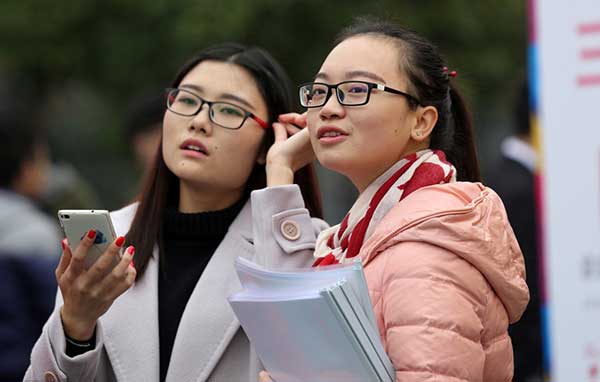Shenzhen exchange attracts net inflows
Foreign investors are focusing on mid to large-cap consumer, healthcare and tech stocks
Trading under the newly-launched Shenzhen-Hong Kong Stock Connect has been smooth, with the Shenzhen-listed stocks attracting continuous net capital inflows, the Chinese securities regulator said on Friday.
Overseas investors have shown greater enthusiasm to trade the Shenzhen-listed stocks, with total transactions reaching 18.9 billion yuan ($2.7 billion) as of Thursday, eclipsing the southbound transaction (mainland investors trading Hong Kong-listed shares) of 4.5 billion yuan, according to the regulator.
Zhang Xiaojun, spokesman of the China Securities Regulatory Commission, said that the trend of northbound trading being more active than the southbound one reflected the allocation demand of Shenzhen-listed stocks by overseas investors.
The trading link between Shenzhen and Hong Kong was launched on Dec 5, as China moved to further open its stock market by offering overseas investors greater access to the mainland's shares.
Gao Ting, head of China strategy at UBS Securities, said in a research note that foreign investors will focus more on mid to large-cap stocks in Shenzhen with strong growth potential, particularly in the consumer, healthcare and technology sectors.
On Friday, Chinese stocks capped their steepest weekly retreat since April as surging money market rates reduced investor demand for equities.
The Shanghai Composite Index slumped 3.4 percent this week, ending on Friday 0.2 percent higher at 3,122.98 at the close.
Property companies fell the most during the week, with China Vanke Co plunging more than 9 percent. A regulatory crackdown on insurers' stock investments added to investor jitters.
Meanwhile, China's sovereign bonds headed for their biggest weekly decline in two years as the central bank sought to force a correction in the highly leveraged debt market by steering money market rates higher.
Home prices are also showing signs of cooling after cities rolled out measures to curb gains, while concern about a faster pace of US interest-rate hikes is pressuring the yuan, already at an eight-year low.
Hong Kong's Hang Seng Index slipped 0.2 percent, taking its weekly loss to 3.3 percent, while the Shenzhen Composite Index rose 1 percent.
"We are facing too many uncertainties including the US interest rate outlook and capital outflows from China," said Steven Leung, Hong Kong-based executive director at UOB Kay Hian.
Bloomberg contributed to this story.























